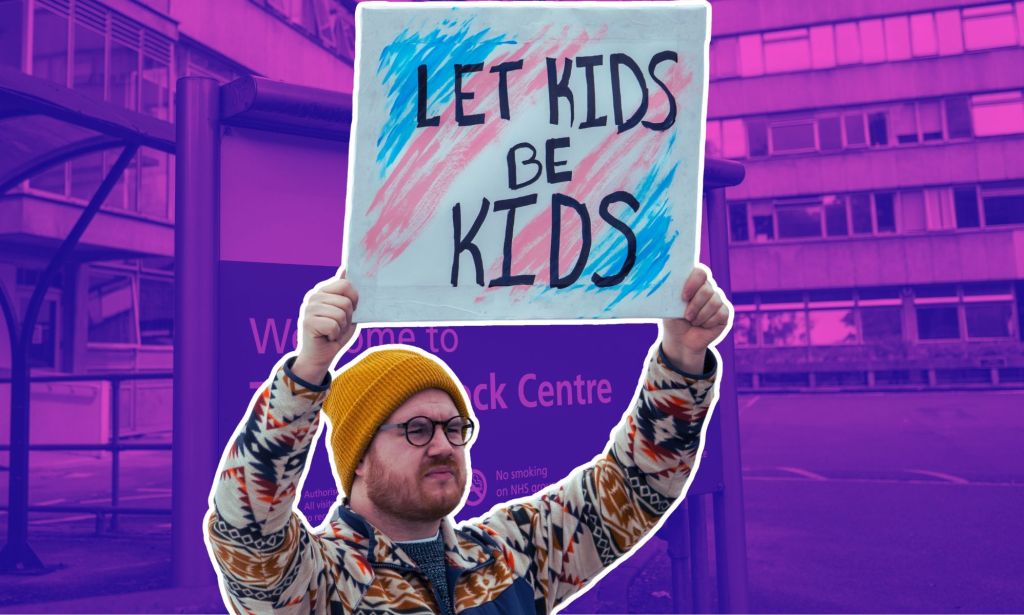Cass report used AI-generated image of gender non-conforming child
Some images of children used to illustrate the Cass report were generated by Artificial Intelligence (AI), it has been confirmed.
The review into the structure of gender-affirming care for trans youth, published last week, used several AI-generated images, including a portrait of a child with short pink hair, to illustrate the 400-page document, officials have confirmed.
NHS England commissioned paediatric expert Dr Hilary Cass to lead a review in 2020, in response to the sharp rise in referrals to what was then England’s only youth gender clinic.
The fully published document builds on the guidance from an interim report in 2022, which recommended that the Tavistock clinic, in north London, be closed in favour of regional hubs across England.
New recommendations included a “holistic approach” to treatment and urged clinicians to exercise “extreme caution” in prescribing hormones, such as puberty blockers, to patients under the age of 25.

Some reviewing the report questioned the origin of some of the images used after an image of a child with short pink and blonde hair on page 233 was noted to have inconsistencies, such as the child’s pupils and the buttons on their jacket.
The review’s cover image was also scrutinised. An image of a child leaning against the wall was noted to be potentially AI-generated, given that their fingers appeared to be fused together.
Speaking to PinkNews, a member of the Cass Report team confimed that they had used Adobe Stock images, but did not elaborate on whether any of them were AI-generated.
The inclusion of AI-generated images was later confirmed by tech publication 404 Media after officials said the report used images from Adobe Stock, “some real and some AI”.
A statement read: “In selecting images, the review was conscious of the sensitive and contentious nature of the subject matter and made effort not to use images that could identify any individuals.”
The Cass report does not appear to flag to readers that some images have been created with AI.
A reverse image search of the picture on page 233 revealed that it comes from Adobe Stock and is titled “Non-binary teen in school hallways with kids in background. Generative AI.”
Searches for “non-binary teenager” in Adobe Stock reveal a wide range of AI-generated images of teenagers with short pink hair and piercings.
The increasing adoption of AI has raised questions about its potential impact on marginalised communities. Artificial intelligence has the potential to erase human bias but also has the potential to reinforce discrimination and stereotypes associated with the LGBTQ+ community.

